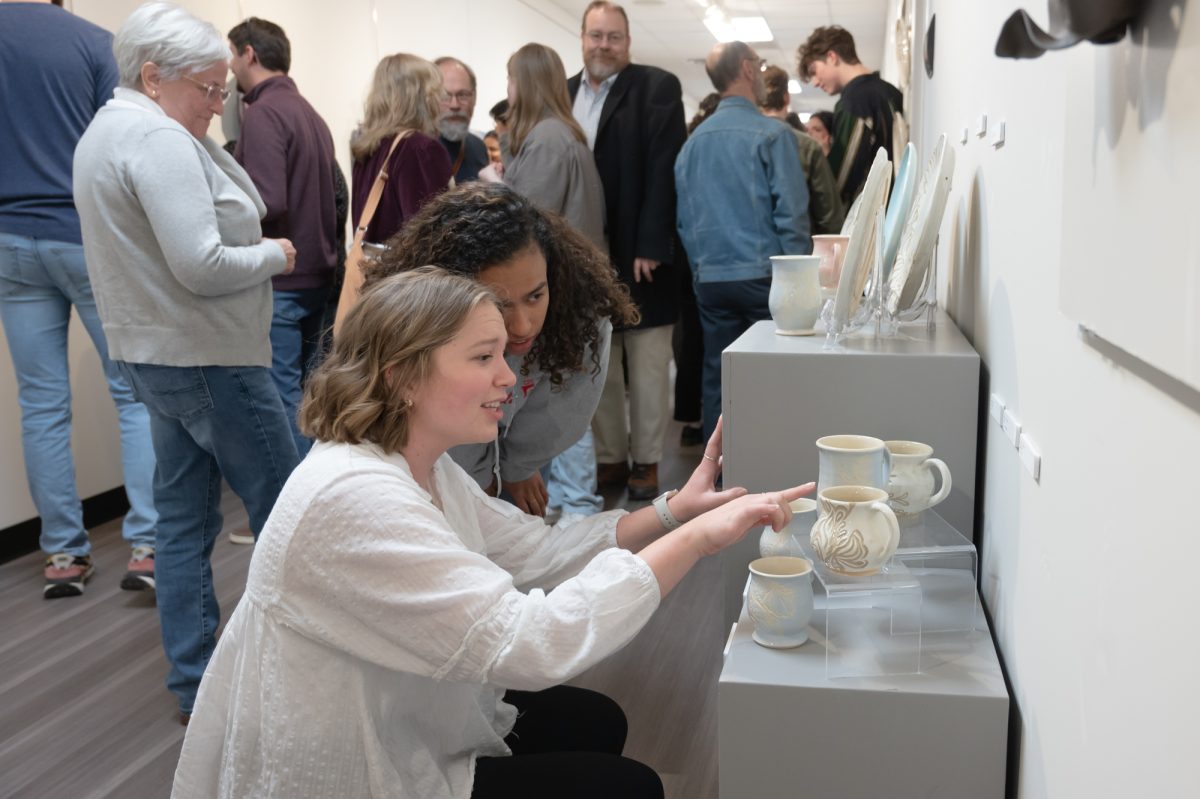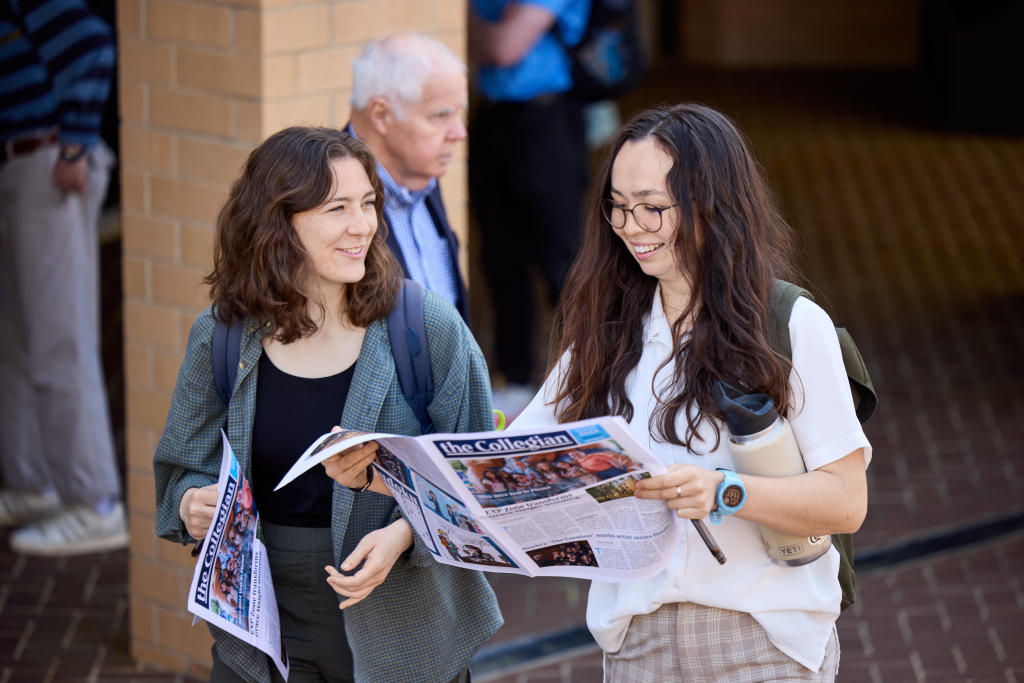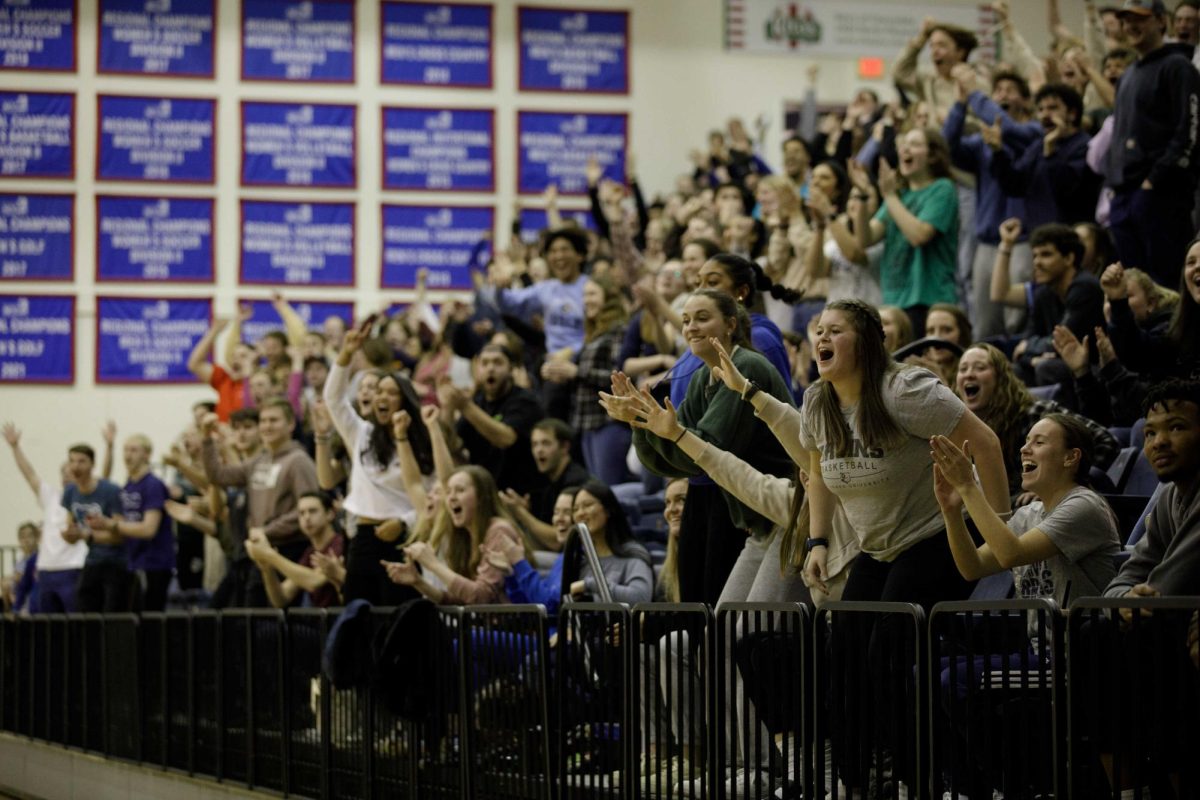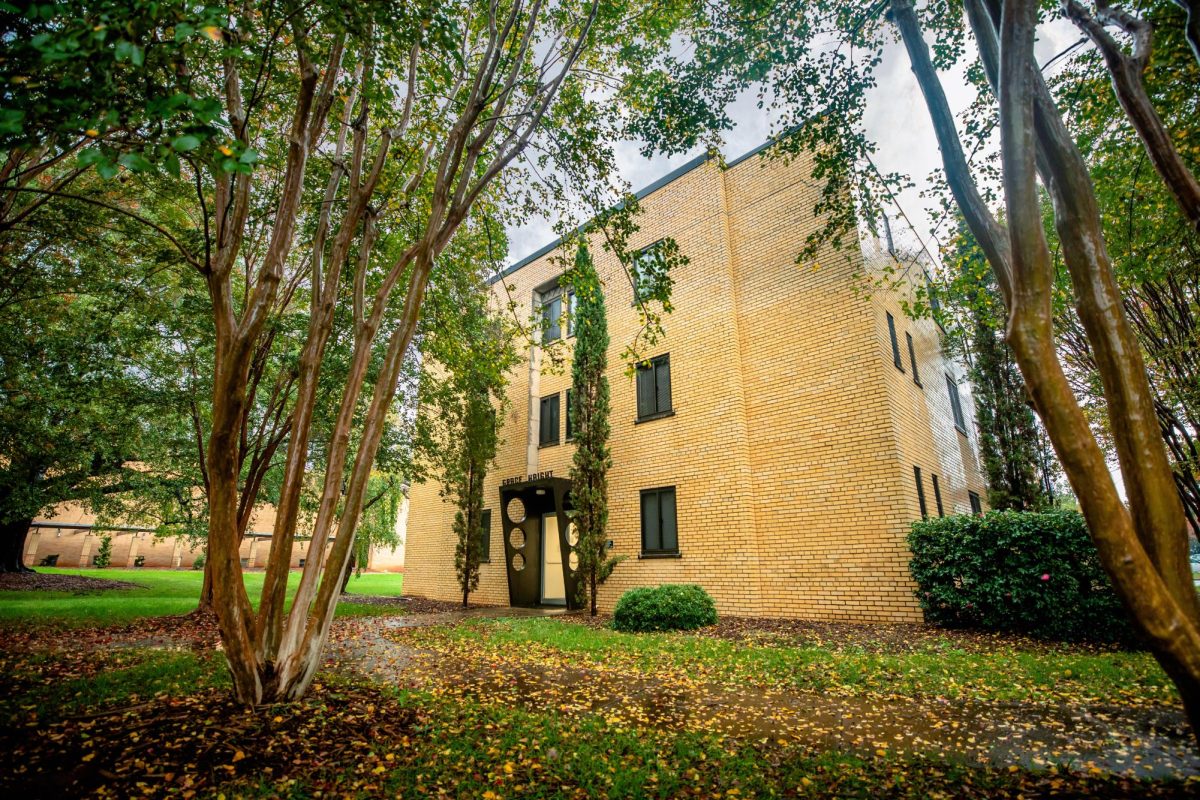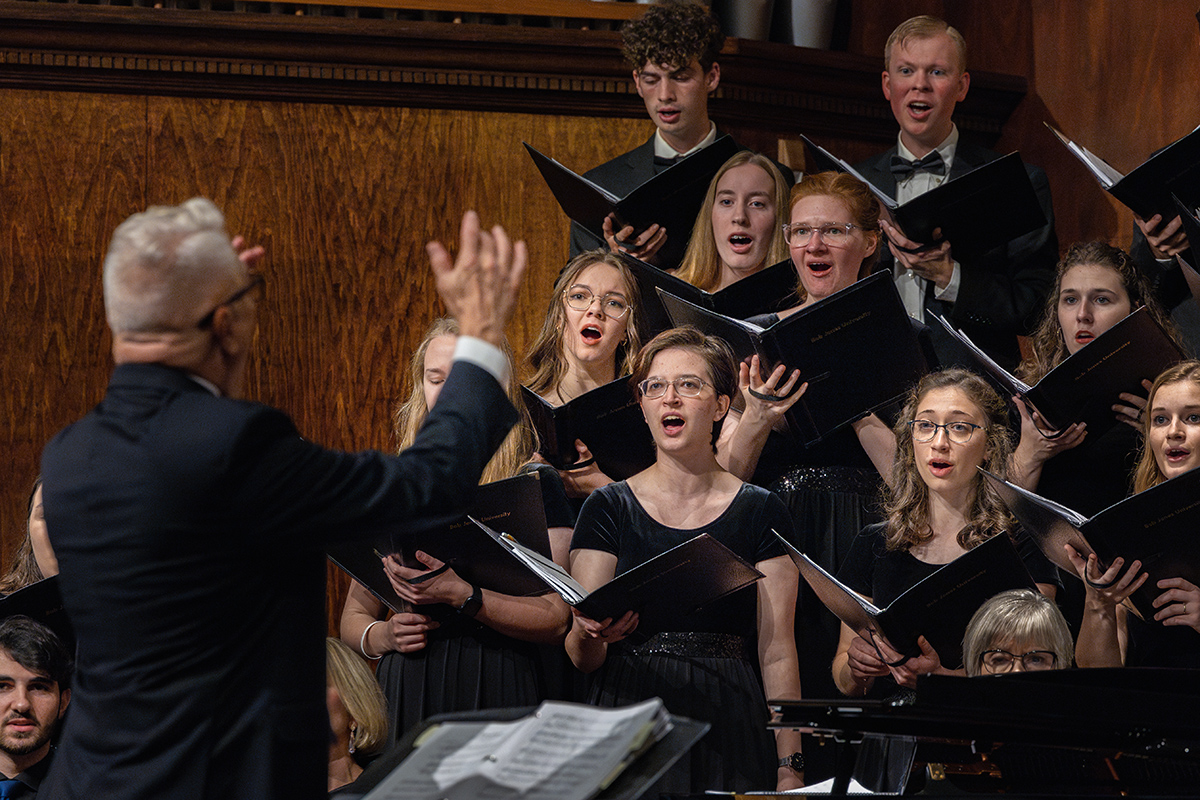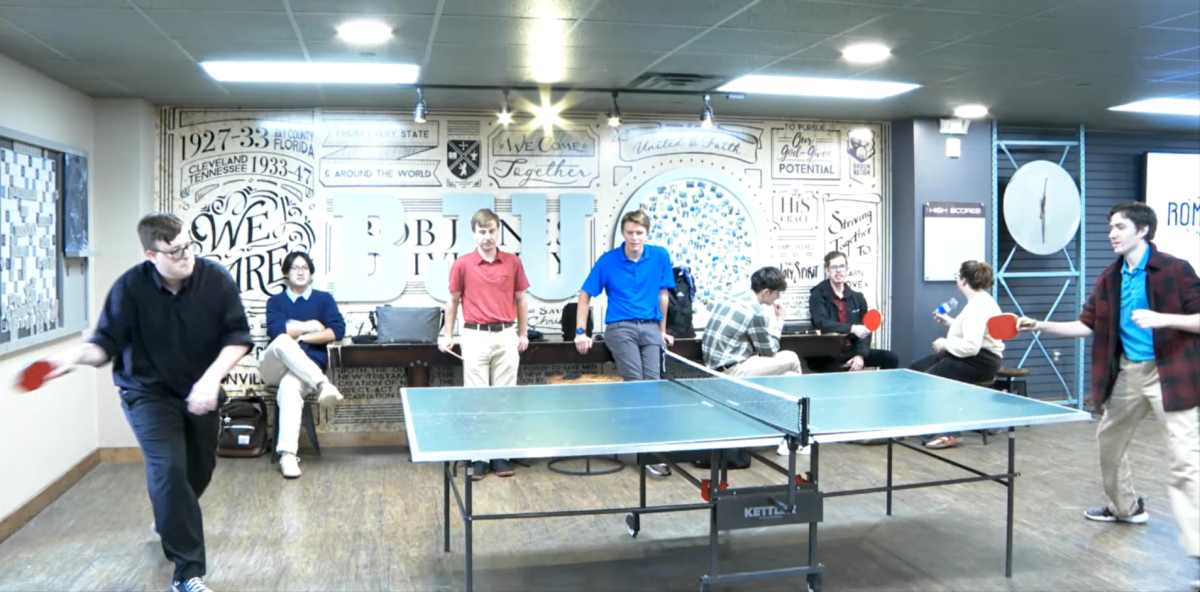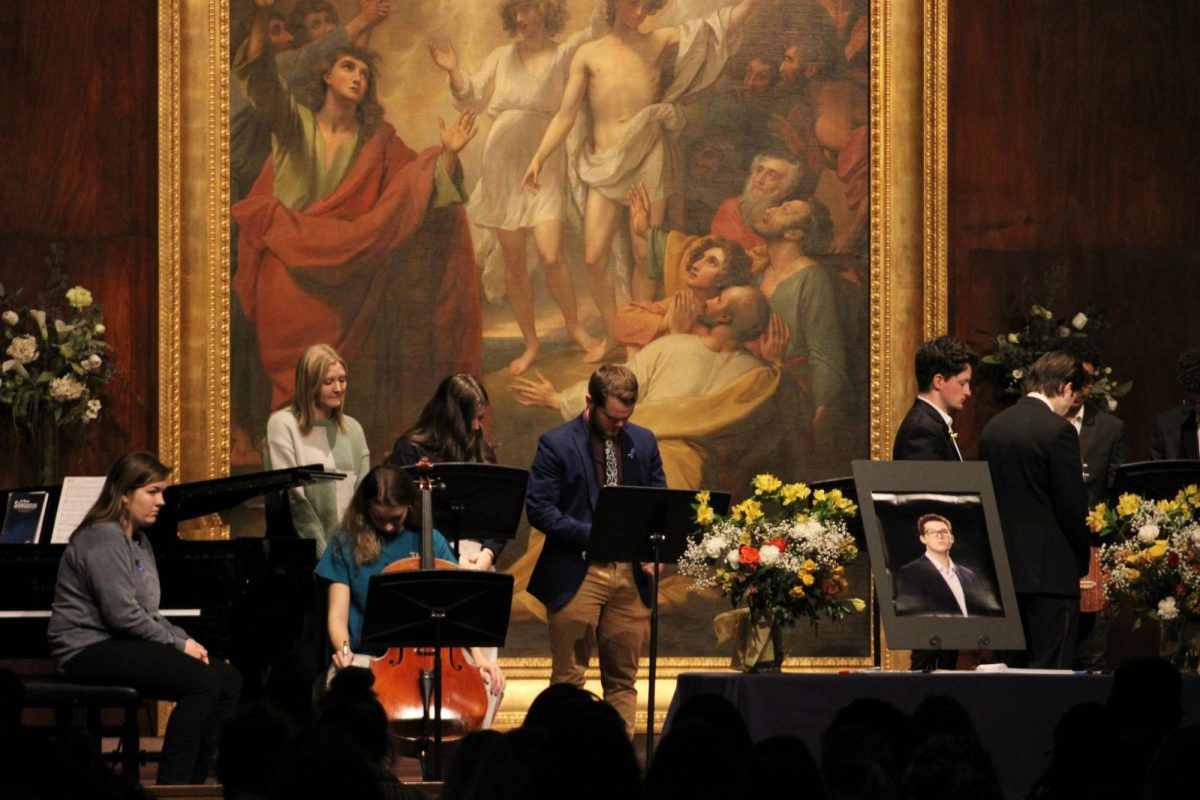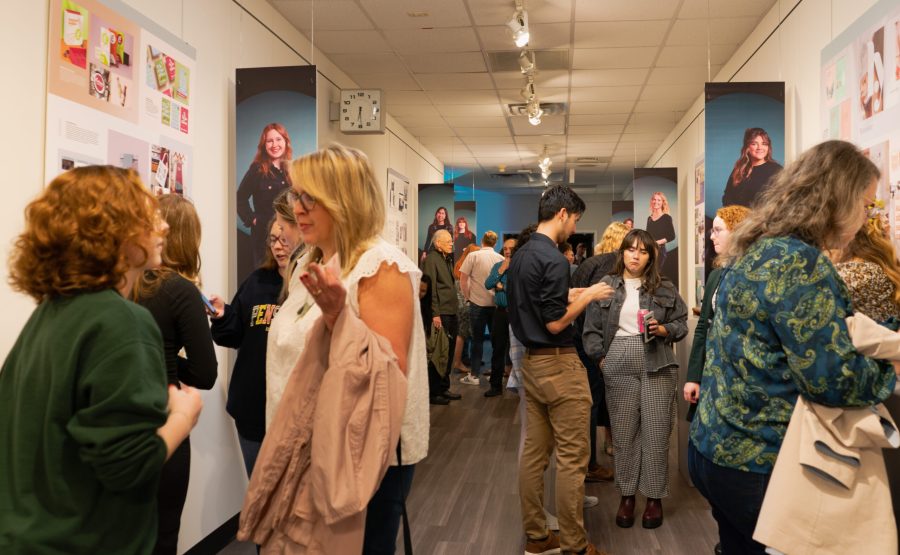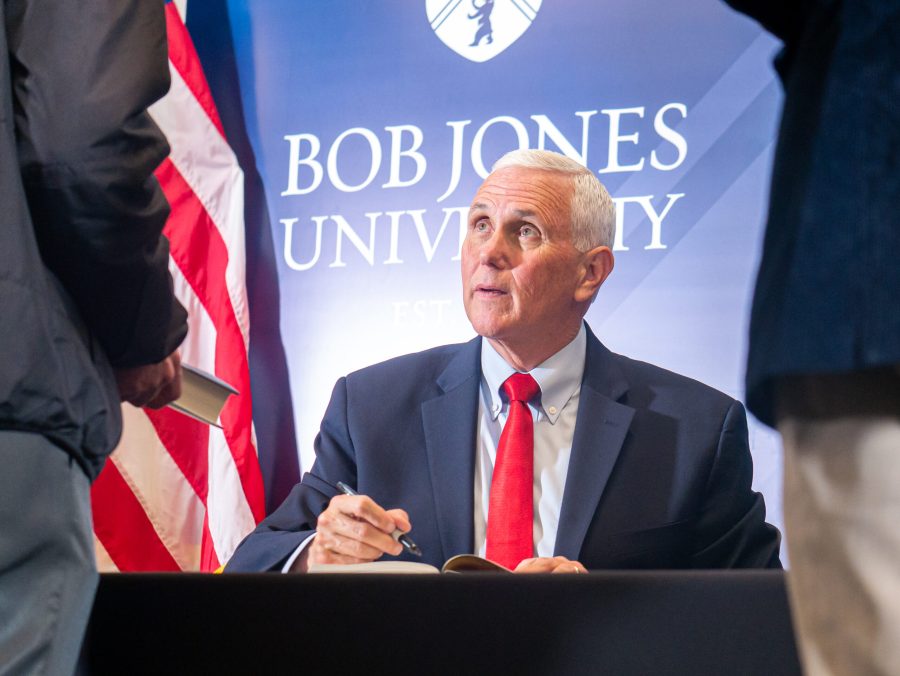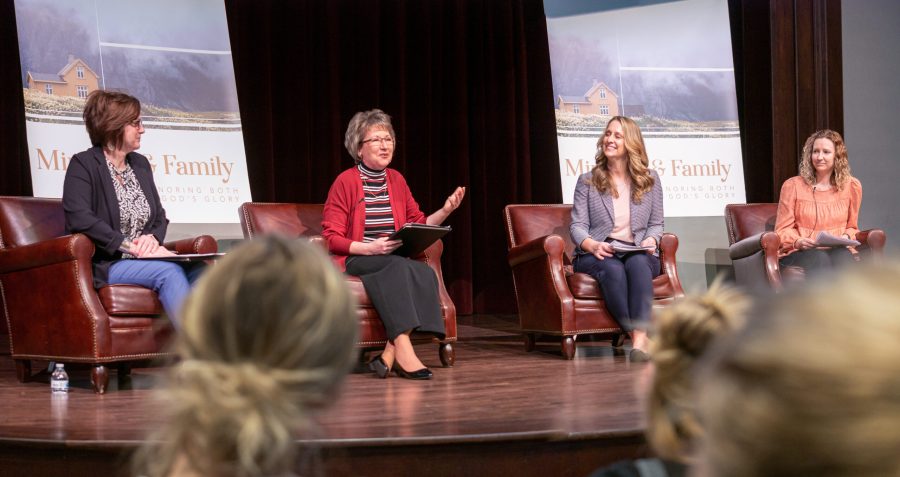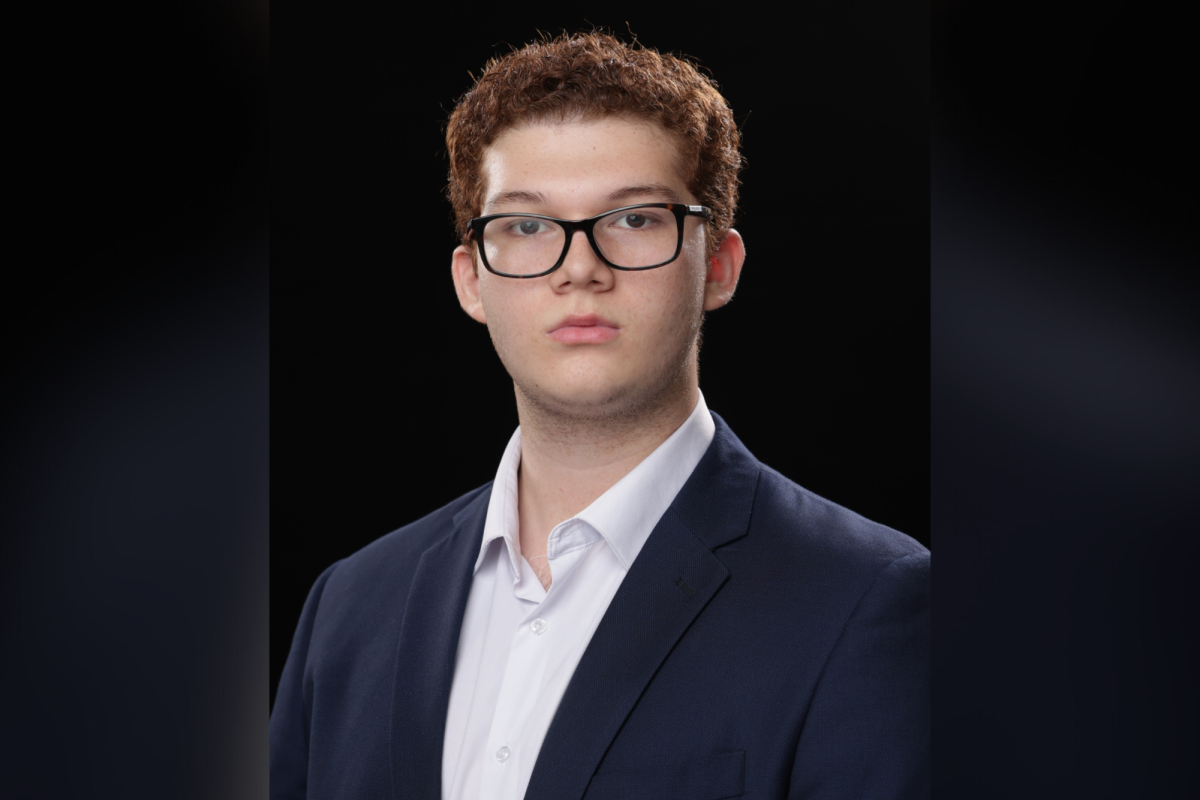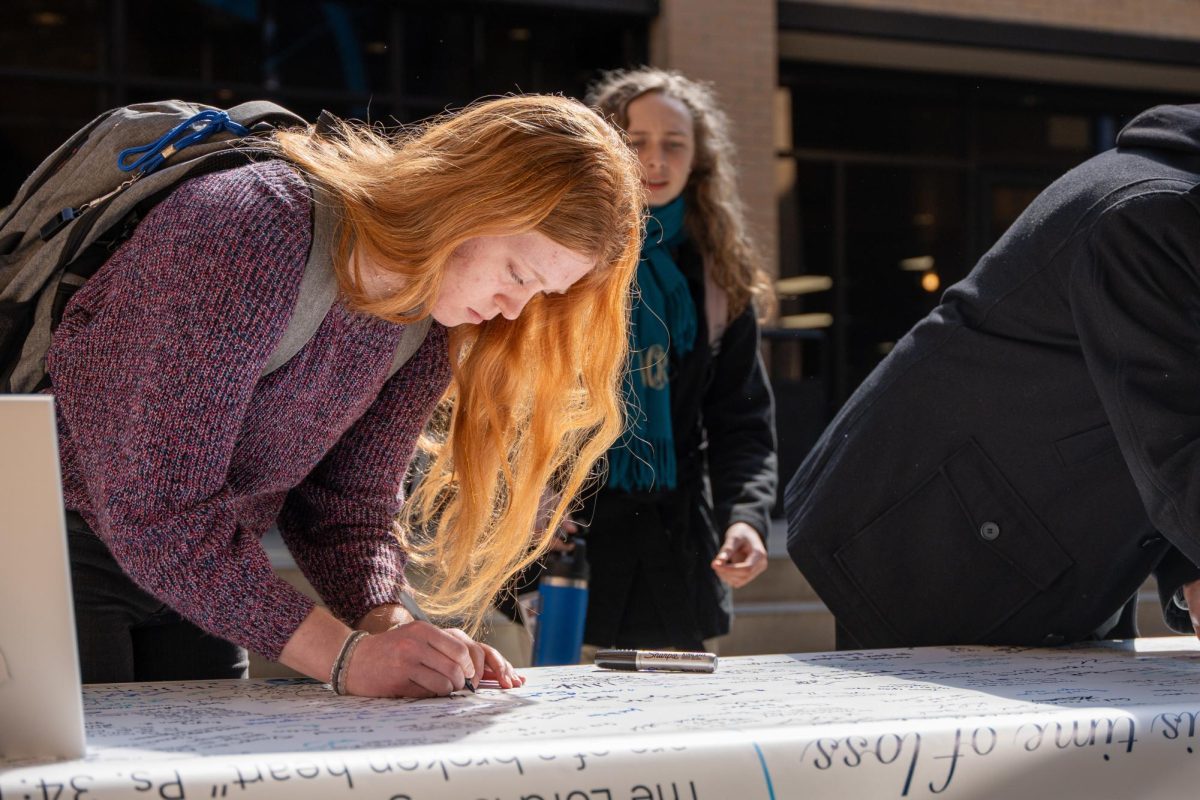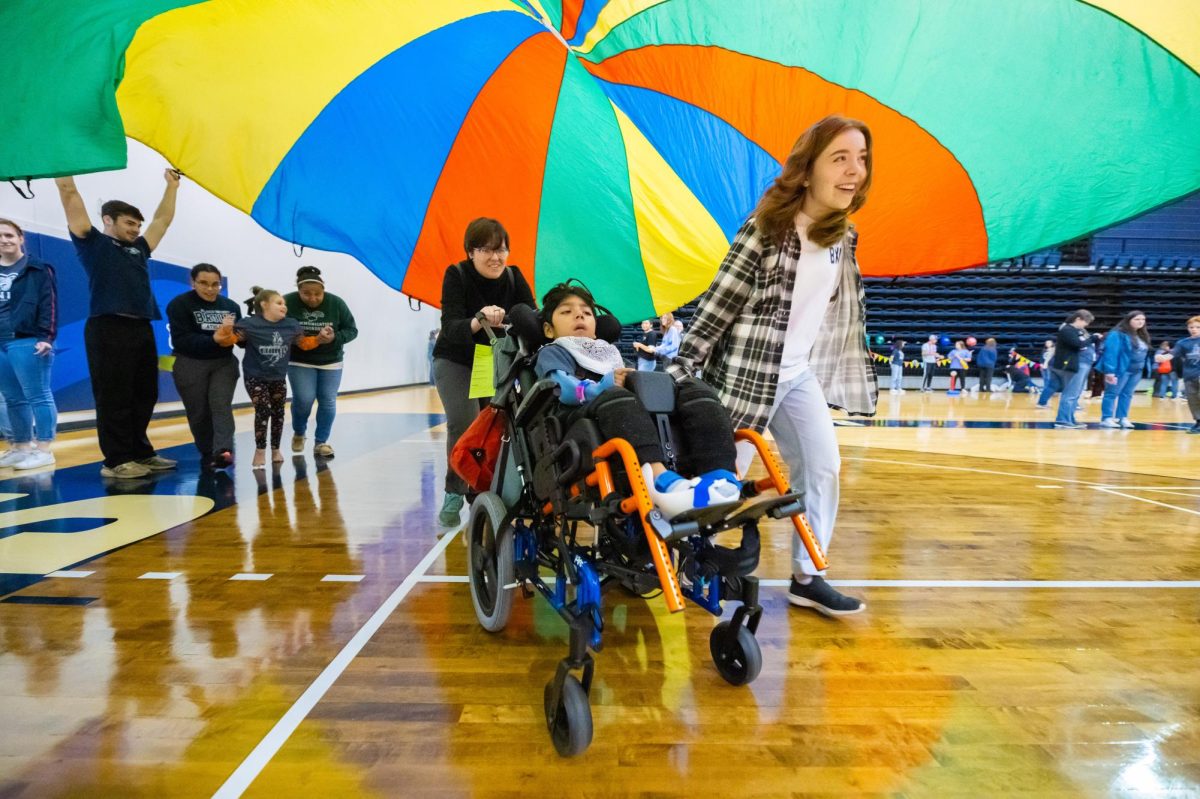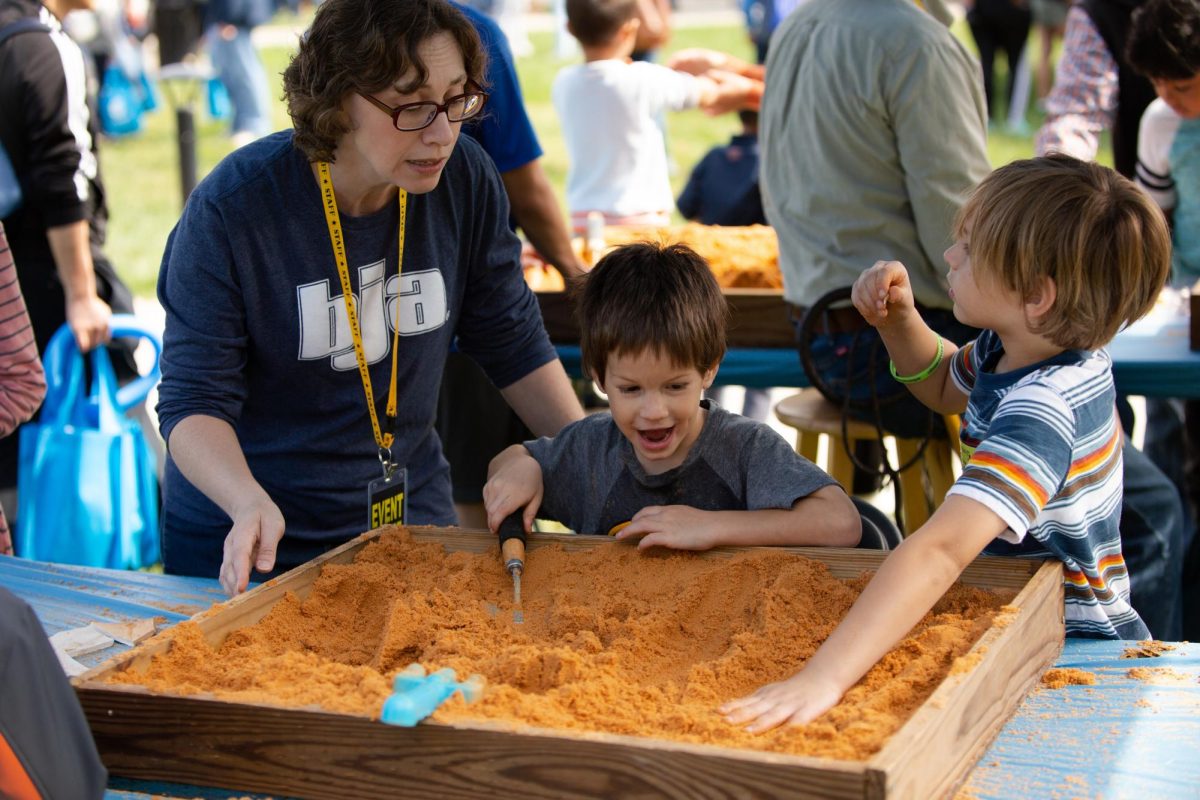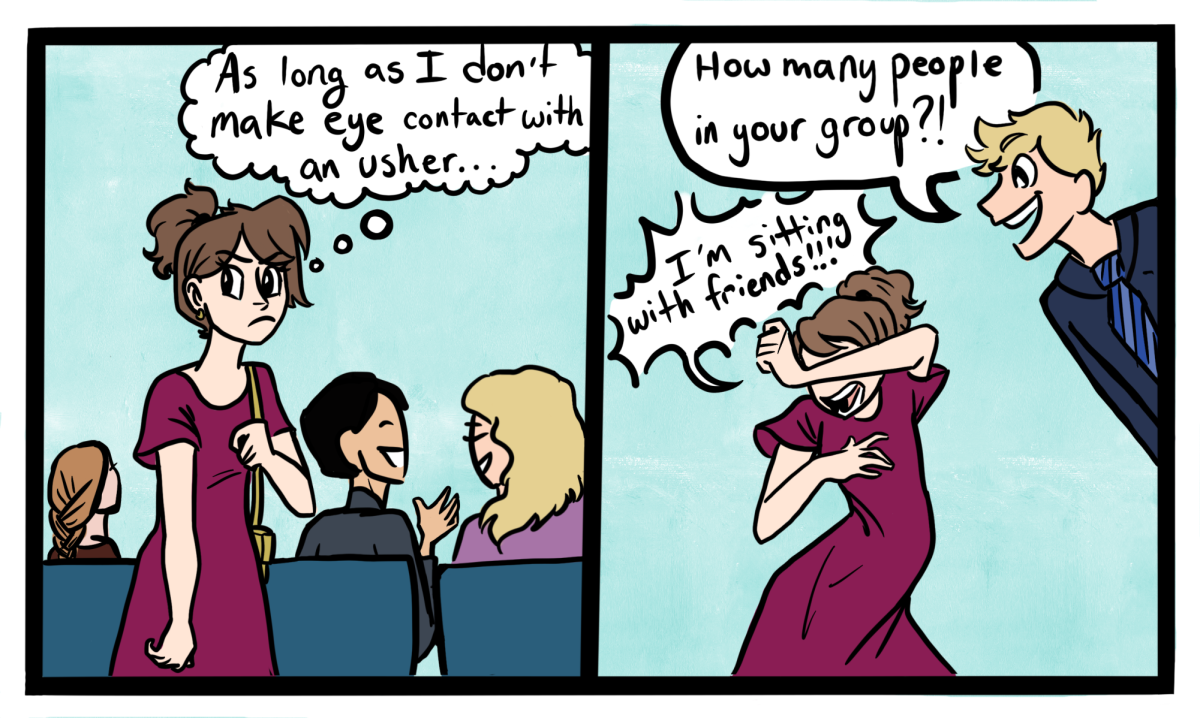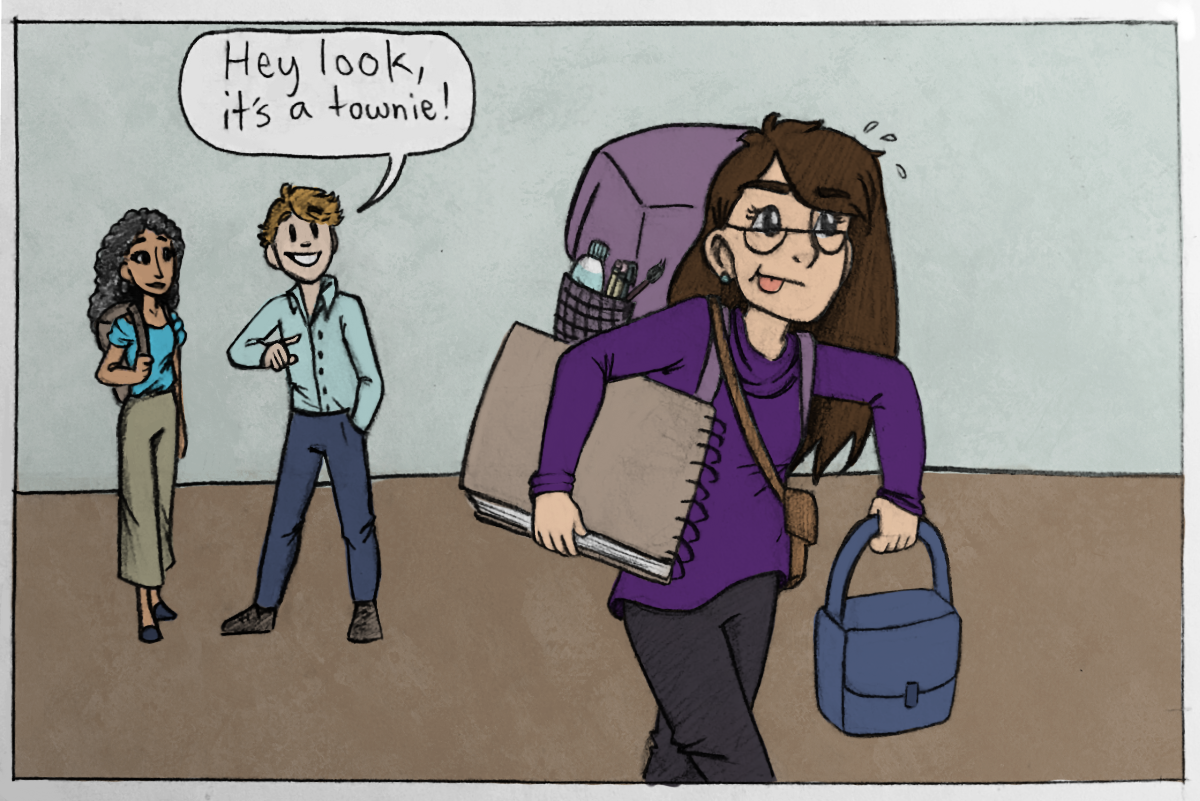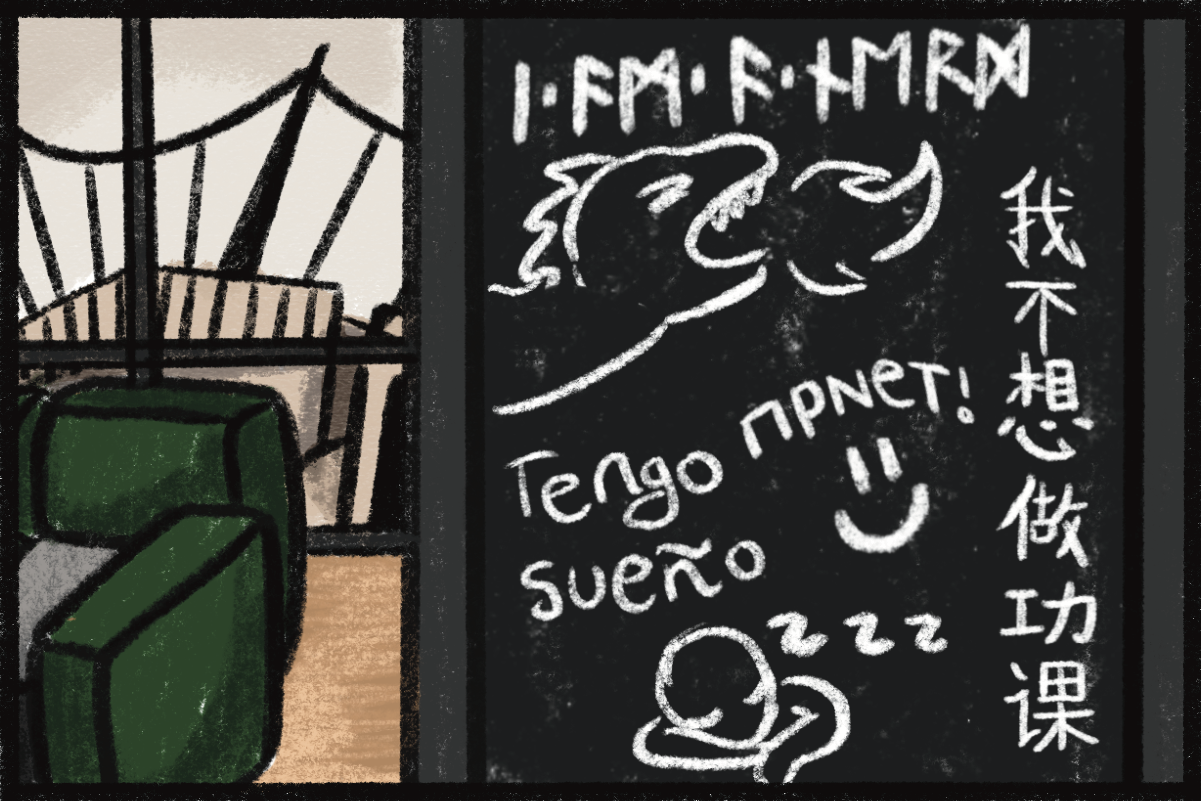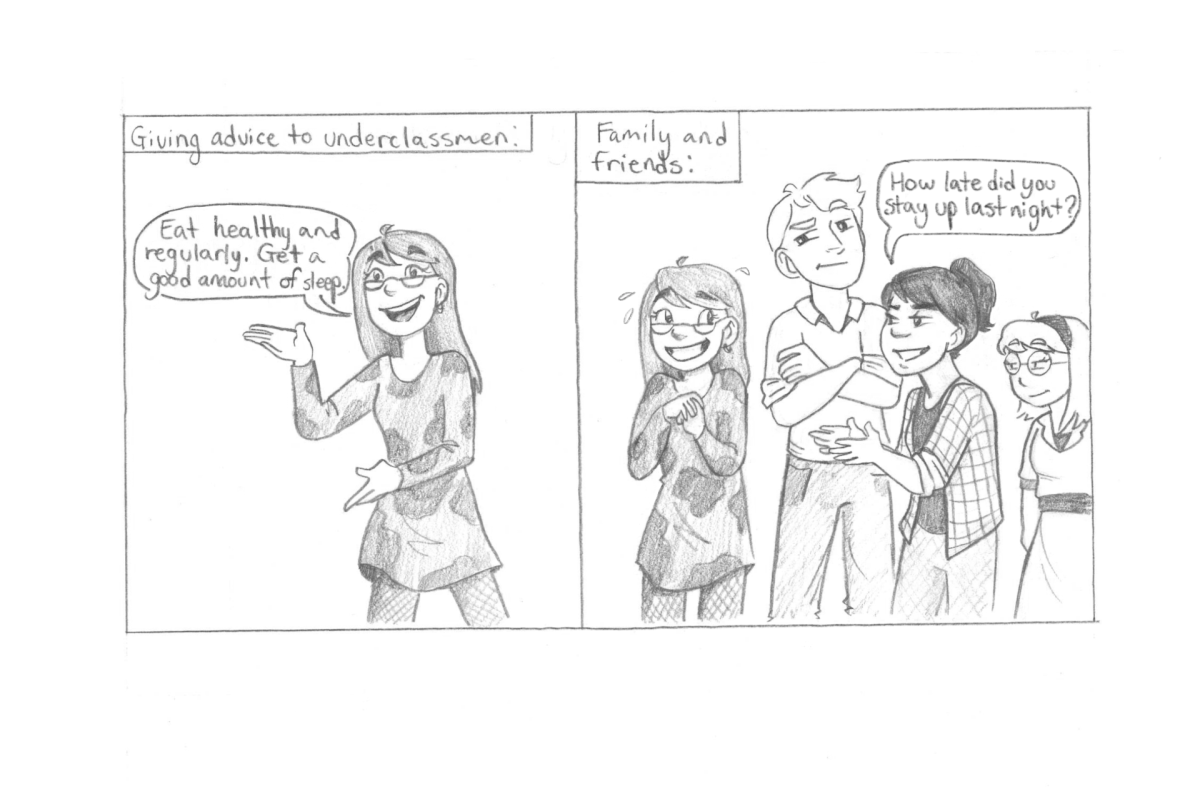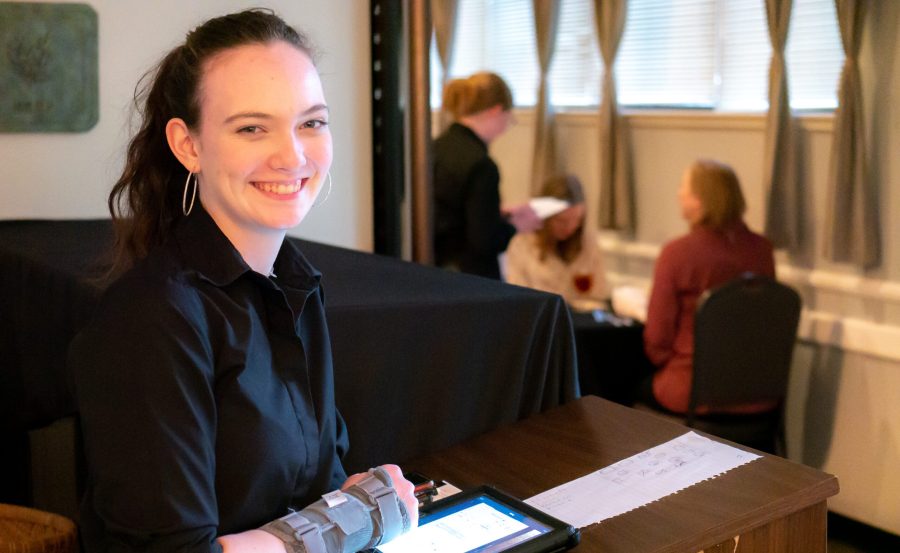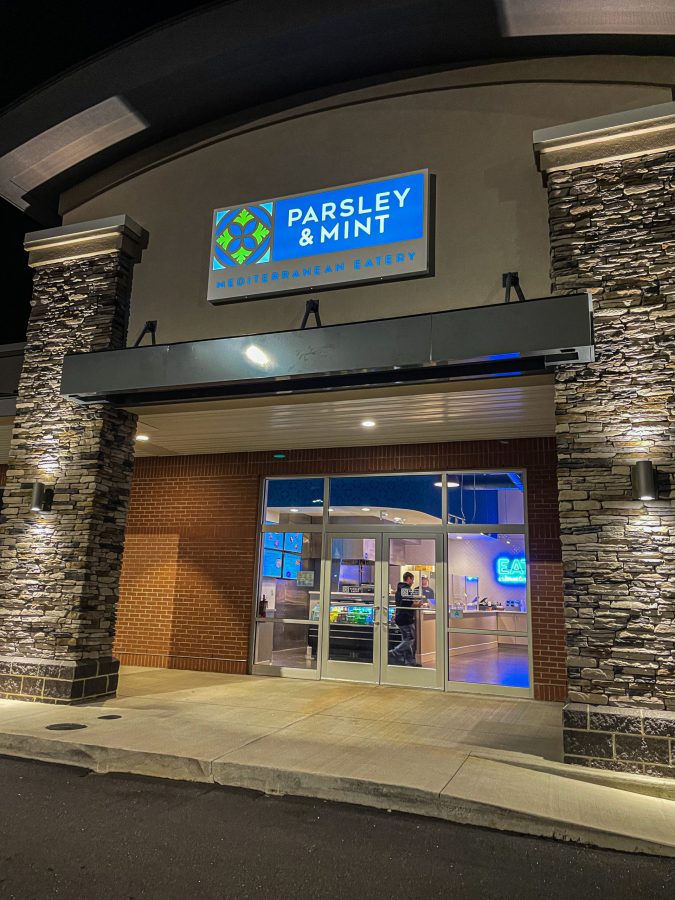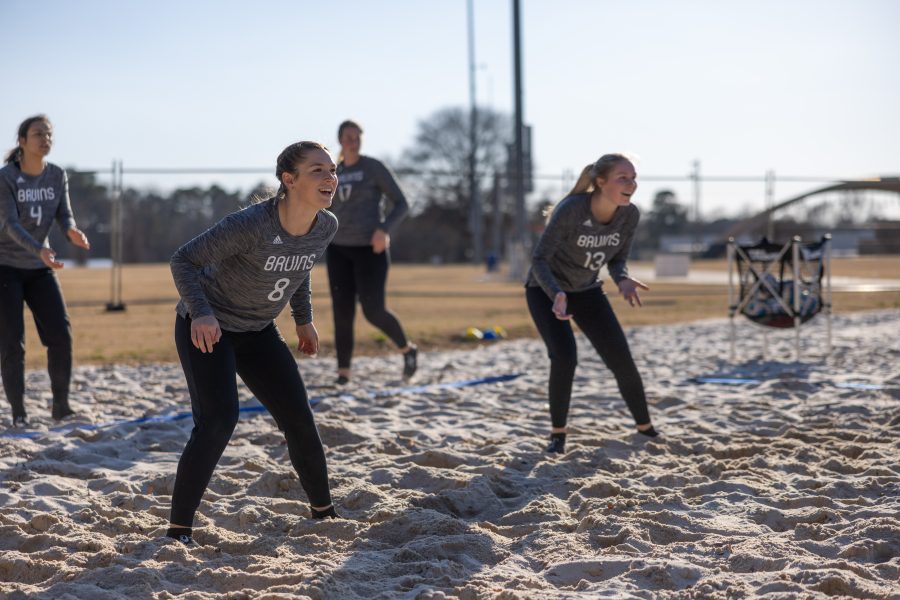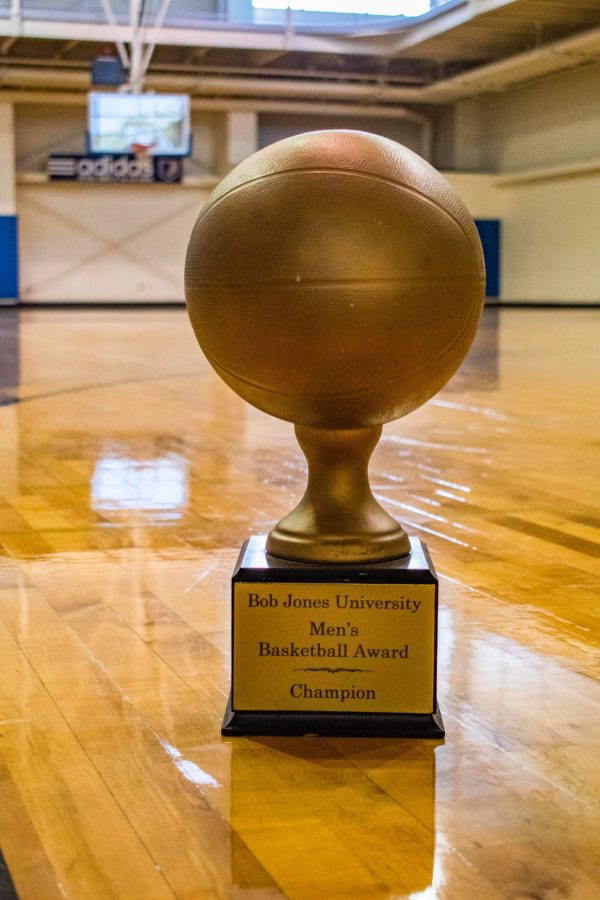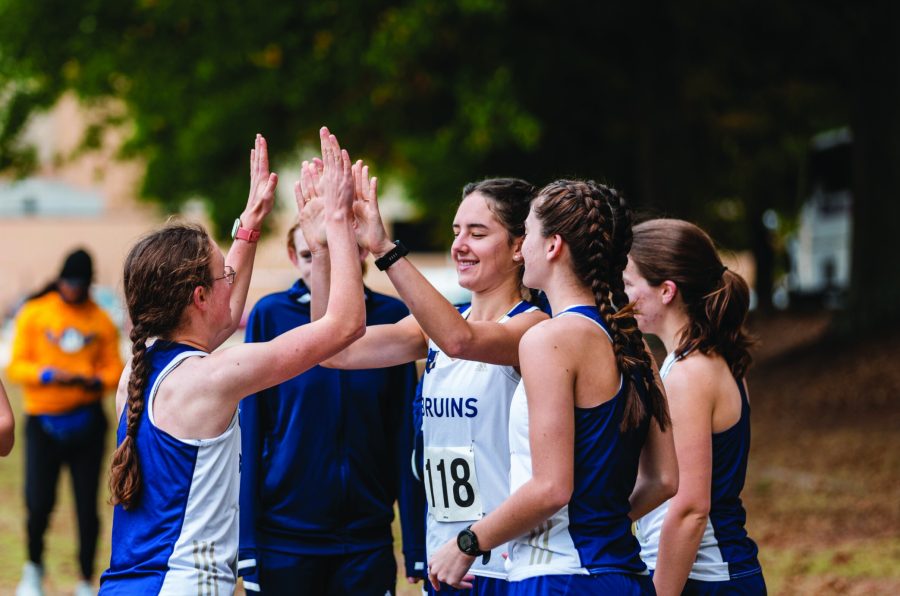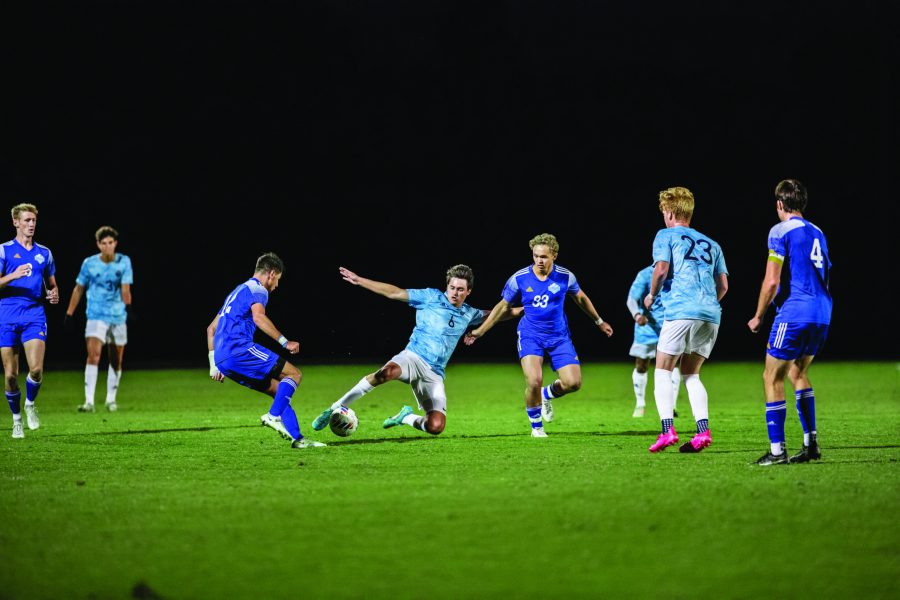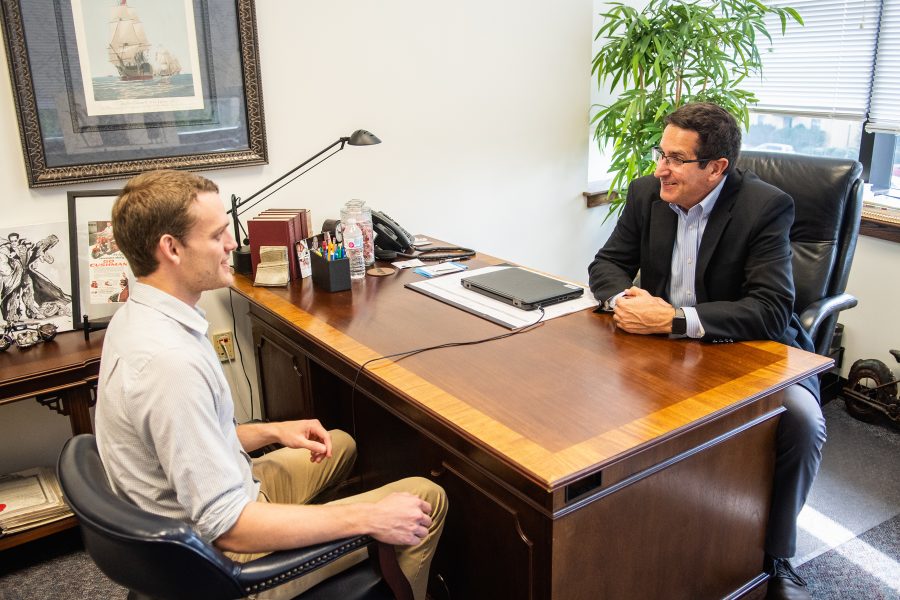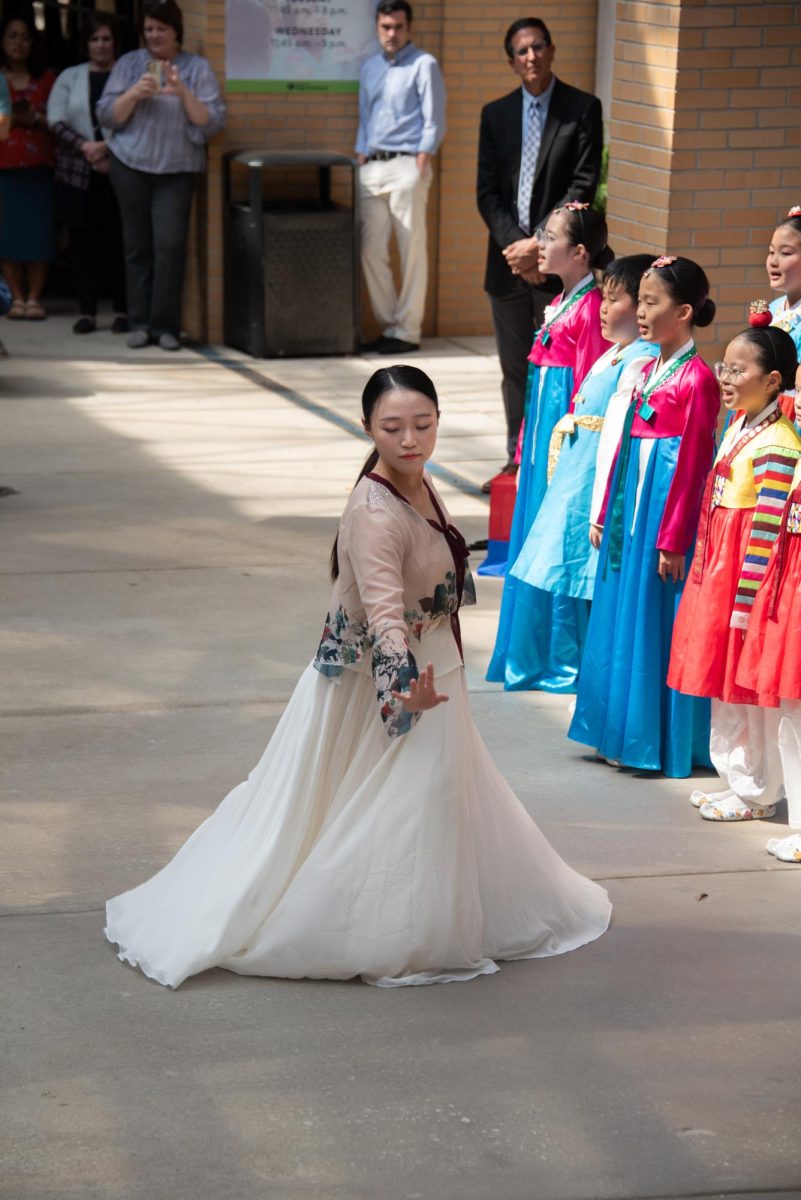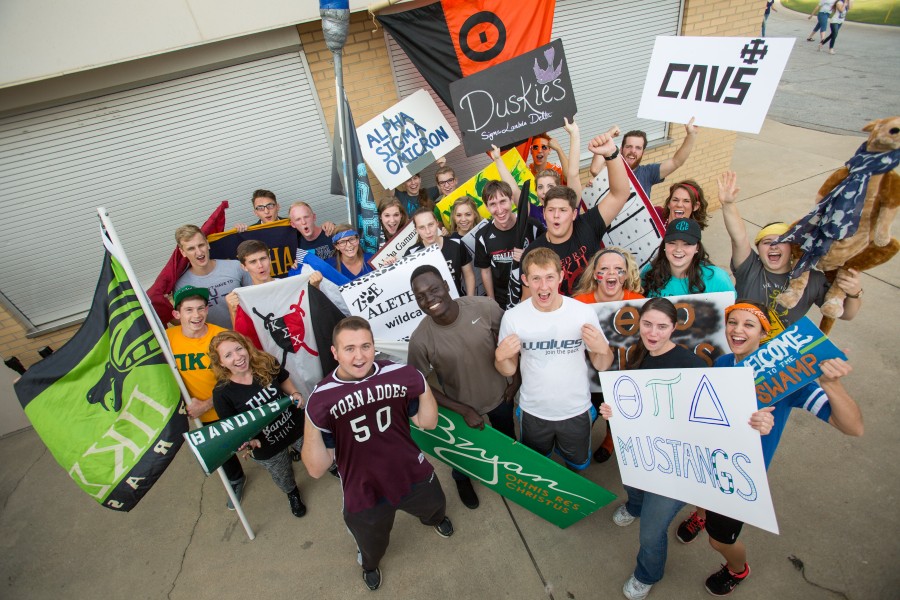BJU Seminary has new options for students looking for more flexible paths to graduation. The seminary’s restructuring will allow students to pursue a master’s degree while working full-time, while serving in the ministry or while still in a BJU undergraduate program.
Andrew Minnick, the academic coordinator for the seminary, said a new option is available called the “four plus two” program. This program allows students to obtain an undergraduate degree in four years and a master of divinity in two years. Through the “four plus two” program, students take certain classes that count toward both their undergraduate and graduate degrees. Students begin taking these dual-credit classes during their junior year.
Minnick said these changes make the master of divinity program very efficient.
“What is traditionally an eight- or nine-year program [undergraduate plus graduate] can now be a six-year one,” he said. The “four plus two” program has six students in its first group. “It’s a vigorous program that requires a high GPA,” Minnick said.
Nathaniel Schweitzer, a sophomore Bible major, is one student in this first group. Schweitzer said he joined the program to get a seminary education at a fraction of the cost and time.
“Maybe you have said, ‘I just want to skip seminary and go straight into ministry because this world needs Jesus now and I can’t afford the debt,’” Schweitzer said. “It’s a legitimate question, but this new program is the answer.”
Minnick encourages students who are interested in the program to speak with him. “I would love for [students] to come by and talk to me if they are interested,” he said. “I want to help them see the benefits of seminary.”
In addition, the seminary began a one-week on-campus component to some of their semester-long courses. This enables students to take classes without moving to Greenville. These courses run for a regular semester’s length. Twelve weeks of the class have an online format with reading, discussion posts and papers.
For one week in the middle, however, students come to Greenville for a week packed full of lectures.
“Every semester they’ll [come] here for their module week,” Minnick said. “They’ll have 30 hours in class—a really intense week.” Minnick said that before the introduction of the module format, students had to either move to Greenville or take their courses entirely online.
“Now we have options that give people the classroom experience without having to move here,” he said. “This makes the programs more flexible.”
The one-week module format also allows people to be involved in ministry while they work on their degree. Two pastors have already started the PhD program in this format—one in Ohio and one in New York. A third format has been added this year that allows Greenville students with full-time jobs to take up to five credits of seminary classes on Mondays. Students can take a two-credit class from 4 to 5 p.m. and a three-credit class from 6 to 8 p.m. Each class has one additional hour a week online.
“This is useful for those who don’t have time to come to seminary three times a week,” Minnick said. “This way, they only have to come one day a week.”
The format of delivery for some classes has also changed. Some courses are now able to be live-streamed. Minnick said, “This semester we actually have 14 students who are live-streaming this fall [including] from Mexico, Argentina, the Dominican Republic and Cambodia.”
The seminary has added eight new concentration options for a master of divinity, and it has reworked the Theological Studies PhD program. Additionally, it added new concentrations—linguistics, translation and missions—for cultural studies.

